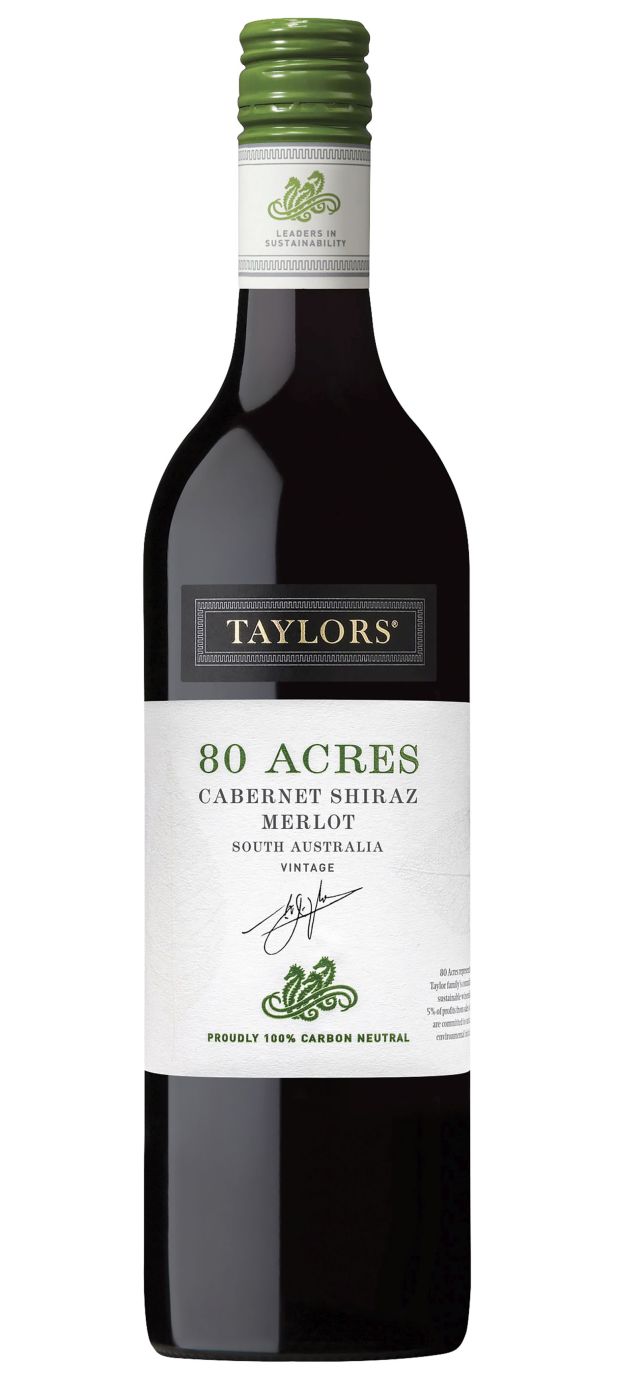Taylors switches to recycled labels for carbon-neutral wines
Taylors has undertaken a packaging and labelling refresh of its range of carbon-neutral wine.
The 80 Acres range was launched in 2007, but this year the Australian winery felt the need for a refresh which communicated its commitment to sustainable winemaking.
Taylors contributes five per cent of its profits from the 80 Acres range to environmental initiatives.
The premium, sustainable Collotype labels are made from recycled and alternative fibres used specifically for the 80 Acres range.
The paper is made in a 100 per cent carbon neutral process, and for every 1000 labels printed one tree is planted through the Trees for Land project.

To showcase the environmental cues while standing out on-shelf, the Stelvin screw cap (supplied by Orora Beverage) has changed from Taylors' signature black to a bold leaf green, with messaging around the neck featuring Taylors seahorse emblem.
The Lean+Green lightweight glass used for the bottles has been supplied by Owens-Illinois.
MD Mitchell Taylor said the newly labelled bottles, which have hit shelves nationally, reflect values that underpin the Taylors brand.
“My family has always been very dedicated to maintaining the land we source our fruit from, so with this packaging update we wanted to make it clear to Australian wine drinkers the positive impact buying a bottle of 80 Acres can have on the environment,” he said.
For the past six years, Taylors Wines has worked closely on the 80 Acres project with Carbon Neutral, an Australian not-for-profit organisation that works to reduce and offset greenhouse gas emissions and support revegetation projects.
Taylors will continue to work with Carbon Neutral, alongside other environmental projects, to completely offset the carbons emitted in the winemaking process and consumption of the 80 Acres range.
80 Acres became the world’s first range of ISO 14044 compliant, 100 per cent carbon neutral wine range in 2009, following a full Life Cycle Assessment from vineyard to glass.





